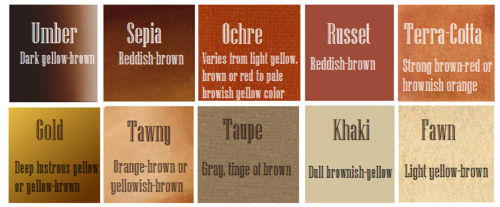I'm a fan of synonyms, okay? I use all kinds of different verbs in my writing to make things easier and faster to explain, because I believe that the less words you use, the better the writing is. This is just my opinion though, so you should do whatever you want and what works for you. But here is a wonderful list of synonyms for
walk.
Amble: walk easily and/or aimlessly
Bounce: walk energetically
Clump: walk heavily and/or clumsily
Falter: walk unsteadily
Foot it: depart or set off by walking
Footslog: walk through mud
Gimp: see
limp
Hike: take a long walk, especially in a park or a wilderness area
Hobble: walk unsteadily or with difficulty; see also
limp
Leg it: see “foot it”
Limp: walk unsteadily because of injury, especially favoring one leg; see also
falter
Lumber: walk slowly and heavily
Lurch: walk slowly but with sudden movements, or furtively
March: walk rhythmically alone or in a group according to a specified procedure
Mince: walk delicately
Mosey: see
amble; also, used colloquially in the phrase “mosey along”
Nip: walk briskly or lightly; also used
colloquially in the phrase “nip (on) over” to refer to a brief walk to a
certain destination, as if on an errand
Pace: walk precisely to mark off a distance, or walk intently or nervously, especially back and forth
Parade: walk ostentatiously, as if to show off
Plod: walk slowly and heavily, as if reluctant or weary
Pound: see
lumber
Power walk: walk briskly for fitness
Prance: walk joyfully, as if dancing or skipping
Promenade: see
parade
Ramble: walk or travel aimlessly (also, talk or write aimlessly, or grow wildly)
Roam: see
ramble
Saunter: to walk about easily
Scuff: to walk without lifting one’s feet
Shamble: see
scuff
Shuffle: see
scuff (also, mix, move around, or rearrange)
Stagger: walk unsteadily (also, confuse or hesitate, or shake)
Stalk: walk stealthily, as in pursuit
Step: walk, or place one’s foot or feet in a new position
Stomp: walk heavily, as if in anger
Stride: walk purposefully, with long steps
Stroll: see
saunter
Strut: see
parade
Stumble: walk clumsily or unsteadily, or trip
Stump: see
lumber
Swagger: walk with aggressive self-confidence
Tiptoe: walk carefully on the toes or on the balls of the foot, as if in stealth
Toddle: see
saunter and
stagger; especially referring to the unsteady walk of a very young child
Totter: see
stagger (also, sway or become unstable)
Traipse: walk lightly and/or aimlessly
Tramp: see
lumber and
hike
Trample: walk so as to crush something underfoot
Traverse: walk across or over a distance
Tread: walk slowly and steadily
Trip: walk lightly; see also
stumble
Tromp: see
lumber
Troop: walk in unison, or collectively
Trot: see
nip
Trudge: see
plod
Waddle: walk clumsily or as if burdened, swinging the body
Wander: see
ramble





